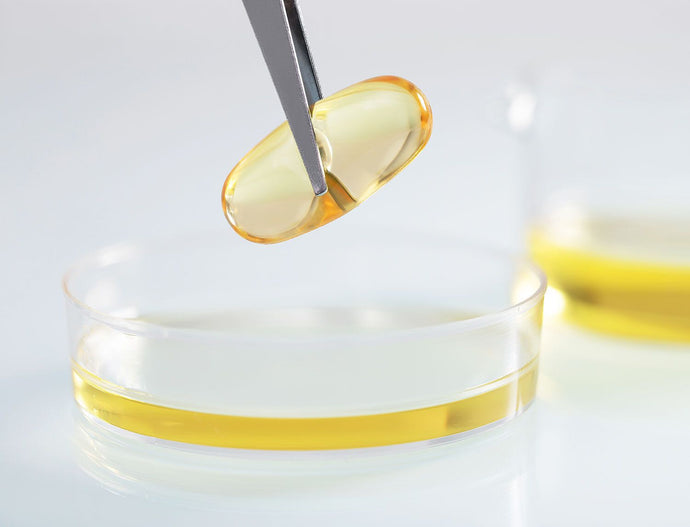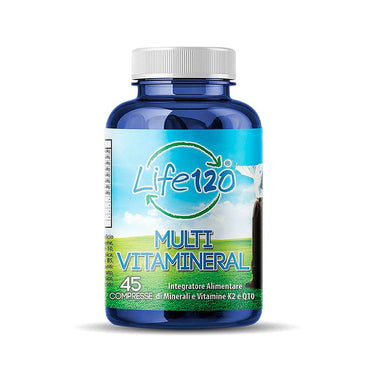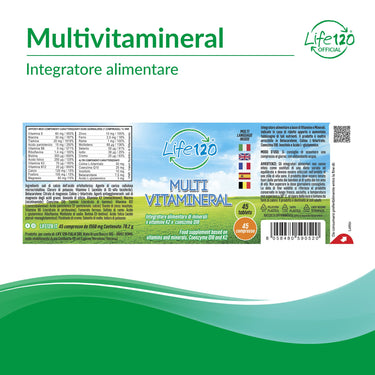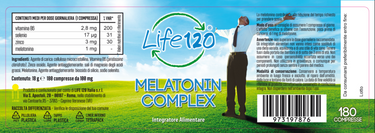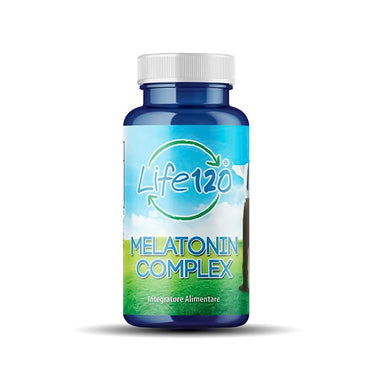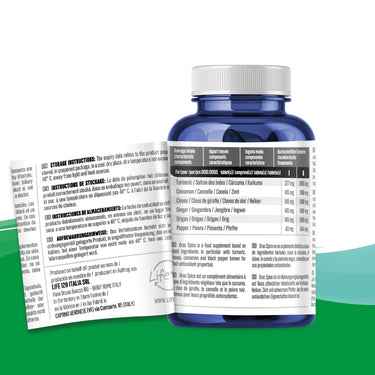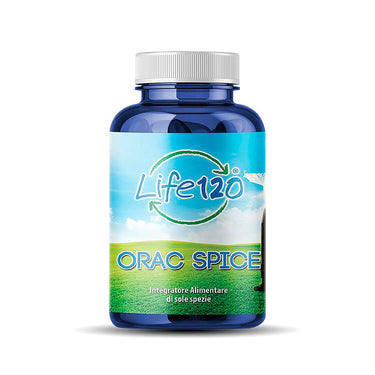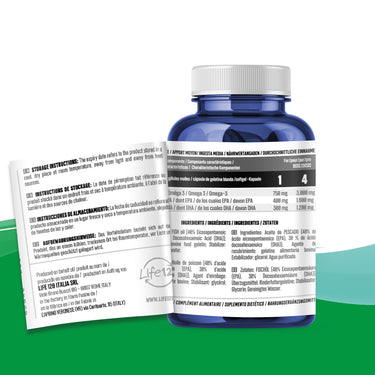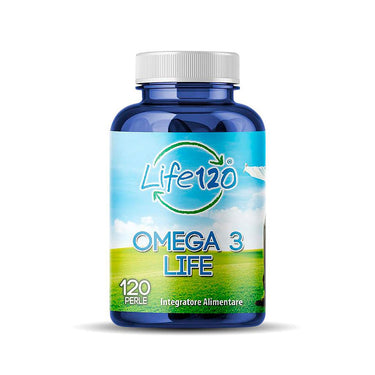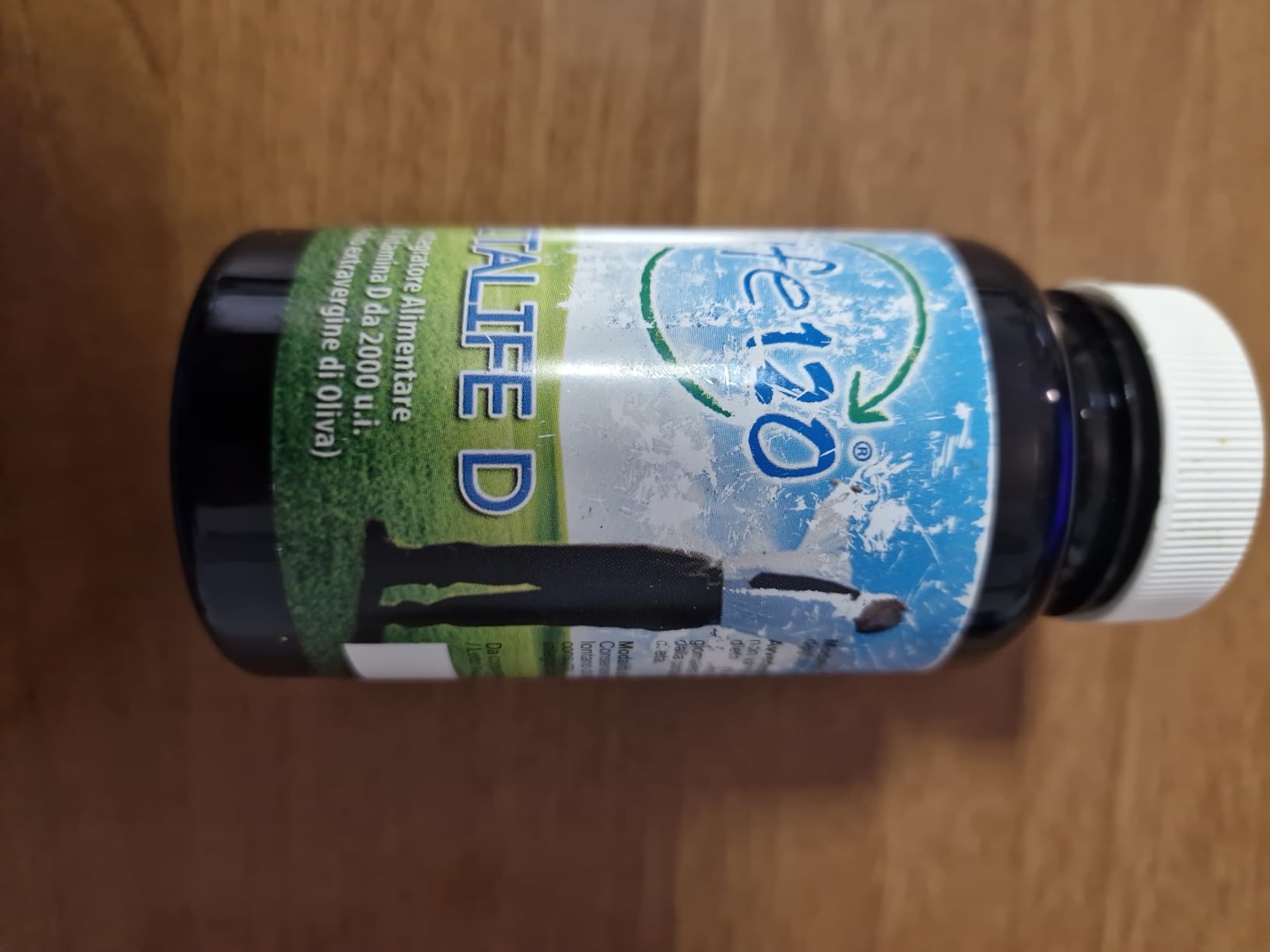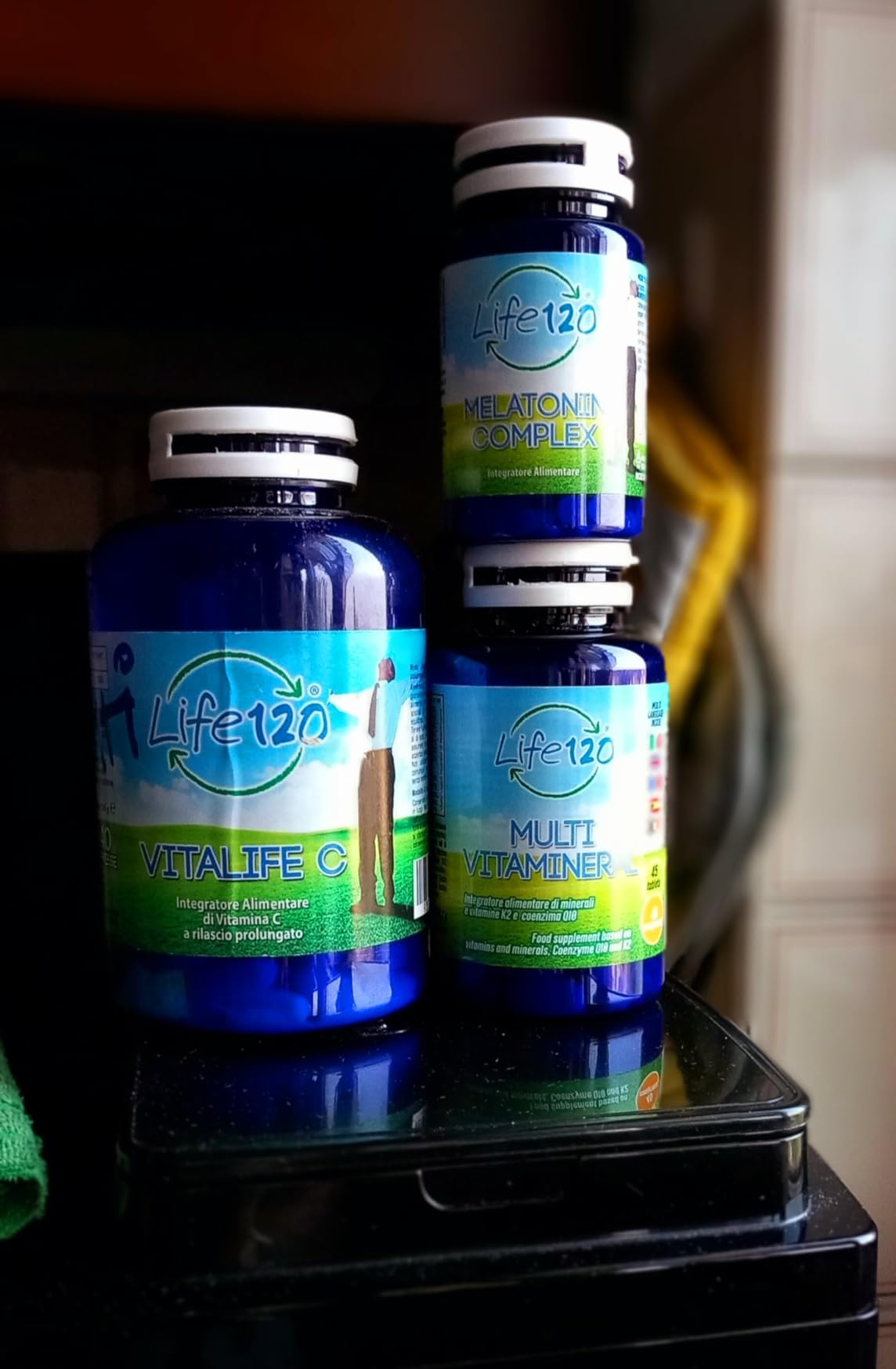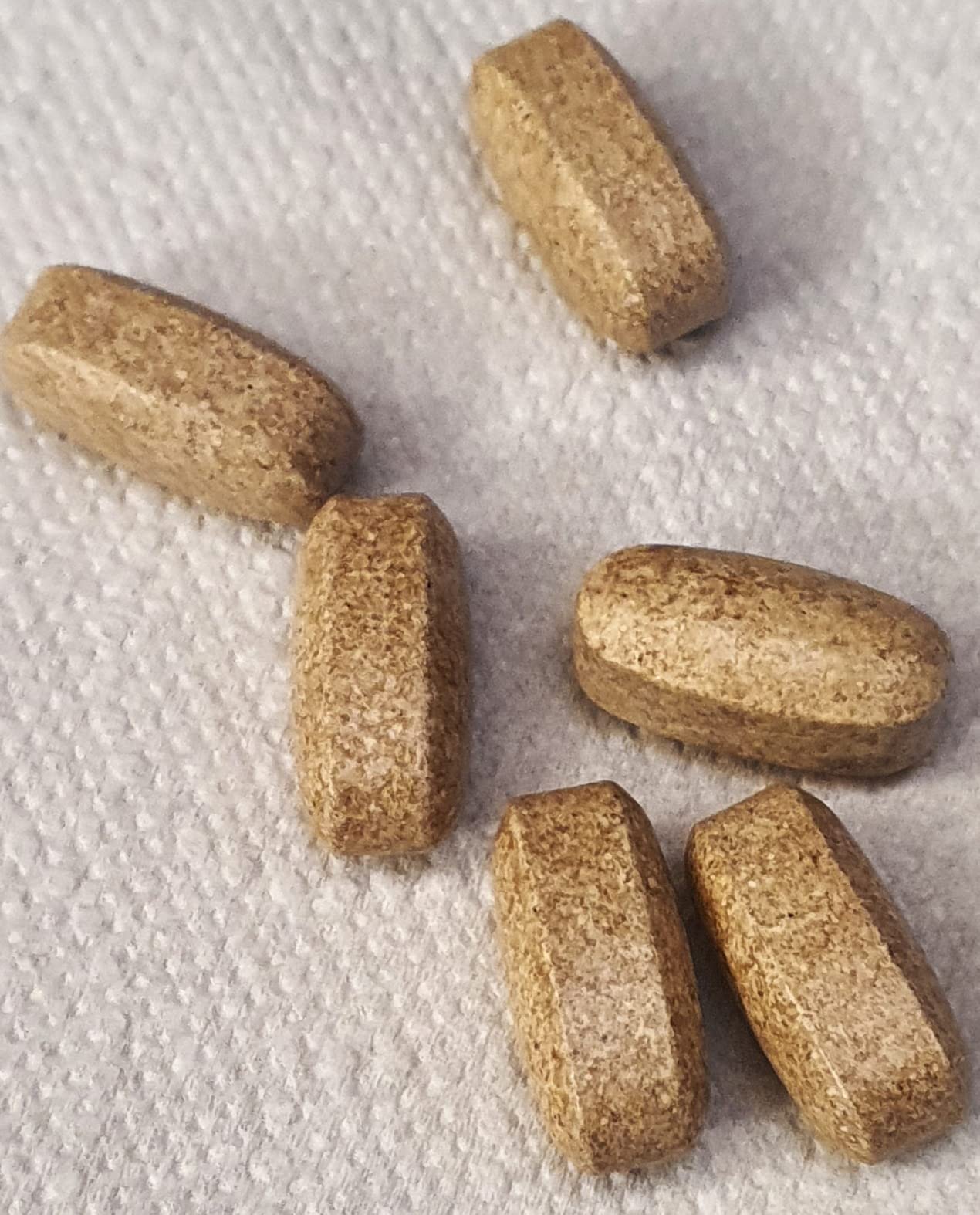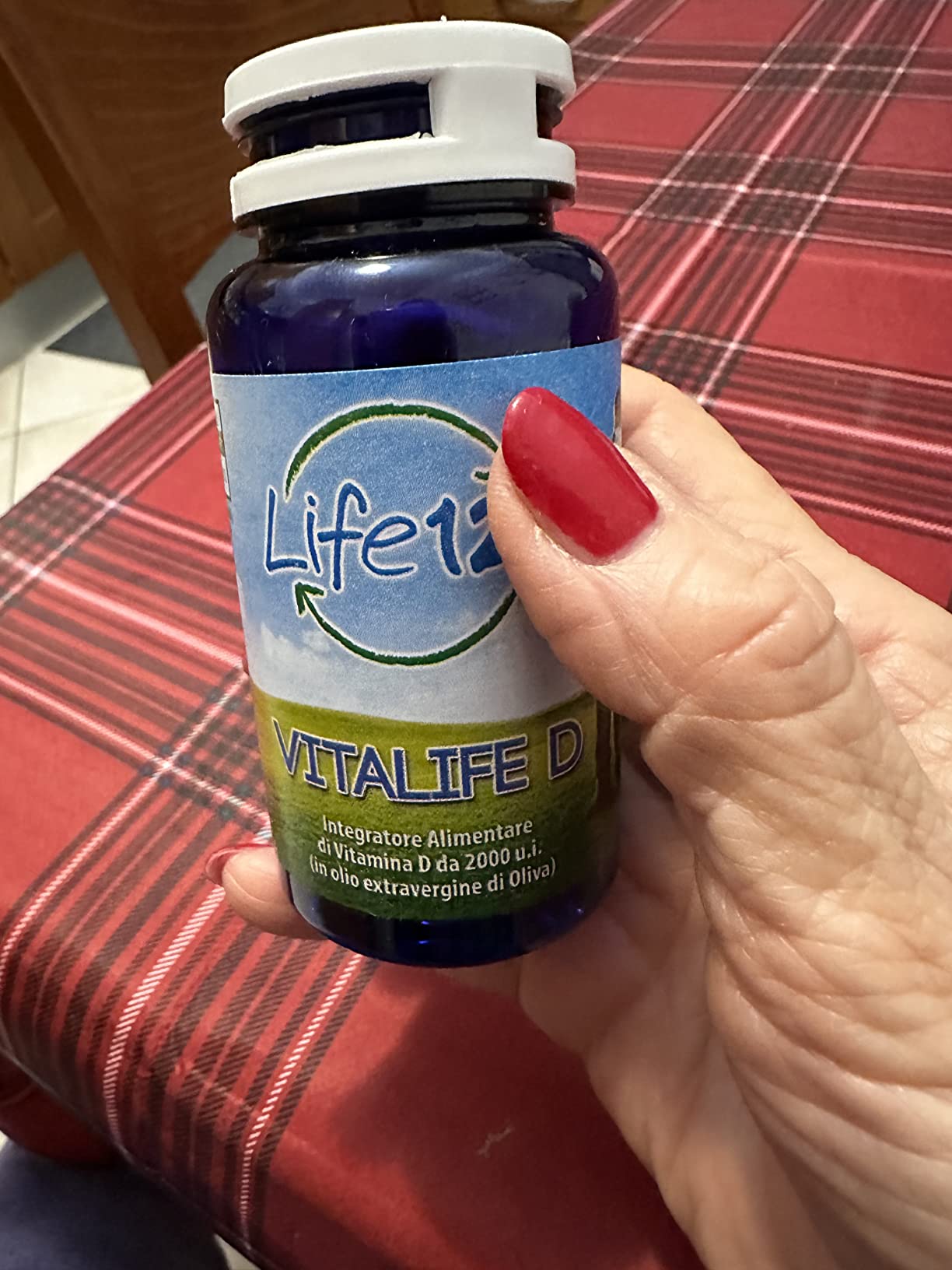Loading agent: phosphate calcium, microcrystalline cellulose, potassium chloride, vitamin and acetate, beta carotene, magnesium citrate, blanket, anti -aggregate cholenar: vegetable stea -mesh magnesium, silicon dioxide; Vitamin B3, Coenzyme Q10, Vitaminab1 HCI, Vitamin B12, Vitamin B5, Zinco oxide, inositol, Vitamin B6 HCI, Fumata iron, vitamin K2, pentahydrate sulphate copper, L-Glutammical acid, vitamin B2, sodium molybeddato bihydrated, biotin (vitamin H), folic acid, chrome, chrome acid. Picolinate, Sodioselenito, Potassium iodide.
- 20 mg of vitamin B1 (thiamine)
Thiamine contributes to normal energy metabolism and its presence is essential to be able to obtain energy from nutrients, in fact it participates in the transformation of carbohydrates, lipids and proteins.
It contributes to the normal functioning of the nervous system and is necessary for the growth, development and normal functioning of the brain, heart and nerves.
Increases attention and learning ability.
- 1.4 mg of vitamin B2 (riboflavin)
Vitamin B2 has many properties, bringing several benefits to the body.
In addition to being fundamental for the functioning of normal energy processes (with a reduction in tiredness and fatigue), it is important for visual capacity, contributing to the health of the eyes, for the metabolism of iron, for the physiological function of red blood cells and for the protection of cells from oxidative stress.
It gives its contribution, together with zinc and copper, for the maintenance of normal skin.
- 30 mg of vitamin B3 (niacin)
Niacin contributes to the normal psychological function and the nervous system, enhancing memory and cognitive processes.
It contributes to normal energy metabolism.
Niacin is used as a natural treatment for cleaning acne, bringing significant benefits on redness and skin irritation.
- 15 mg of vitamin B5 (Pantotenic acid)
Vitamin B5 plays an important role in the metabolism of fat, carbohydrates and proteins and is involved in the synthesis of cholesterol and different hormones.
A valid ally for the protection of hair and skin is presented, to prevent states of tiredness and promotes wound cicatrization processes.
- 8 mg of vitamin B6 (pyridoxine)
Vitamin B6 promotes the regulation of hormonal activity and supports the correct functioning of the nervous system also through the synthesis of many neurotransmitters including serotonin, Gaba, dopamine etc.
It contributes to the normal formation of red and white blood cells for the correct functioning of the immune system.
Given the direct involvement in the conversion of homocysteine, highly toxic amino acid, in cysteine, the vitamin B6 deficit promotes an increase in the concentration of homocysteine and therefore a drastic increase in the risk of arteriosclerosis.
- 10 mg of vitamin B7 (inositol)
Inositol stimulates the production of lecithin, a substance that would seem to stimulate the cleaning of the internal walls of the arteries.
In addition to protecting nerve cells, this vitamin helps to fight stress and facilitates the maintenance of good memory.
- 300 μg of vitamin B8 (biotin)
Biotin is essential for the skin, nails and hair: it stimulates the synthesis of a stronger keratin, activating the cells that replicate faster. The result are stronger hair and nails, as well as faster growth.
It allows a good function of the nervous system and participates in the maintenance of psychological functions.
- 250 μg of vitamin B9 (folic acid)
Folic acid contributes to the growth of maternal tissues in pregnancy, protecting and promoting the development of the embryo.
It is very important for the growth, reproduction and proper functioning of the nervous system.It has an important role in the metabolism of homocysteine: often high homocysteine values can indicate a state of malnutrition or the lack of folic acid or vitamin B12.
- 20 μg of vitamin B12 (cobalamin)
In addition to contributing, together with the B9, to the normal homocysteine metabolism, vitamin B12 plays a fundamental role in the production of red blood cells by the bone marrow, with a reduction of tiredness and fatigue.
It favors the synthesis of DNA and myelin, the sheath that covers and protects the nerve fibers.
- 75 μg of vitamin K2
Vitamin K plays a very important role in the blood clotting process. However, a lack of lack of deficiency is rarely verified following diseases that prevent intestinal absorption or prolonged antibiotic treatments, therefore involves bleeding.
The requirement of vitamin K is around 60-80 µg per day.
Contributes to the maintenance of normal bones.
- 60 mg of vitamin e
Vitamin and boasts remarkable antioxidant properties: in fact it is able to trap the free radicals by preventing their diffusion in the body, thus providing protection to our cell membranes, proteins, lipids and DNA.
- 7.5 mg of Beta Carotene
The retinol and its precursors, including Beta Carotene, represent one of the indispensable factors for the vision, as they are constituting of the Rodopsin, a substance sensitive to the light present on the eye retina.
In fact, retinol deficiency involves vision defects that can come, in the most serious cases, until complete blindness.
He plays a role in the cell differentiation process, and is therefore very important for a correct development of the individual, for his immune response capacity, for the integrity of his tissue system.
- 2.5 mg of iron
Iron contributes to the normal cognitive function, to the formation of red blood cells and hemoglobin: in fact it binds to hemoglobin, which transports oxygen to all tissues, and to the myoglobin that fixes oxygen in the muscles, promoting the correct oxygenation of all tissues and organs.
Take part in the normal function of the immune system and energy metabolism, reducing tiredness and fatigue.
- 105 mg of phosphorus
Phosphorus allows the transformation of food into energy, contributing to normal energy metabolism: this mineral is a component of the ATP, an energy molecule used by the cells to perform their vital functions.
It is an essential constituent of cell membranes (in the form of phospholipids), teeth and bones, ensuring their correct regeneration in case of damage.
- 10 mg of zinc
Zinc contributes to normal acid-base metabolism and macronutrients (fatty acids and carbohydrates).
It supports cognitive function, the correct synthesis of DNA, fertility and reproduction.
It contributes to the normal maintenance of visual ability and testosterone levels in the blood.
It intervenes in the process of cell division, contributes to protection from oxidative stress and normal function of the immune system.
- 50 μg of selenium
Similarly to zinc, the selenium effectively contrasts free radicals, implementing a defense action against oxidative stress.
The thyroid is the organ with the highest selenium content of the whole body: selenium's supplementation supports the immune system and decreases the production of anti-tiroid antibodies with a marked improvement in the structure of the thyroid gland.
The selenium contributes to the maintenance of health and nails in health and normal spermatogenesis.
- 25 μg of chromium
Chromium contributes to the normal metabolism of macronutrients.Chromium contributes to the maintenance of normal blood glucose levels: the studies that confirm this hypothesis suggest that this metal is involved in the enhancement of the effect of insulin.
- 60 mg of magnesium
Magnesium is a fundamental mineral for our body and responsible for numerous physiological functions, in particular those related to muscles, brain, bones and heart.
It is involved in the synthesis of numerous neurotransmitters, including dopamine, norepinephrine, serotonin, melatonin and Gaba. For this reason it is a fundamental element in maintaining normal celebraine and cognitive functions.
- 68 μg of molybdenum
Molybdenum contributes to the normal metabolism of sulfur amino acids and it is necessary for the correct functioning of many enzymes.
- 38 μg of iodine
Iodine is an essential component that is used for the synthesis of thyroid hormones, thus enhancing all the functions regulated by these hormones, including the correct functioning of the nervous system and cognitive function, normal energy metabolism (carbohydrates, fat and protein) and body temperature.
- 25 mg of Coenzyme Q10
The Coenzyme Q10 would seem to improve the efficiency of the electron transport chain, increasing the energy available for heart and muscle activities.
It is in fact an excellent ally in sport: with its antioxidant properties, it contrasts free radicals that form during an intense muscle work, thus reducing the feeling of effort.
- 1 mg of copper
Copper participates in the energy metabolism, the correct functioning of various enzymes and contributes to the production of bone tissue, cartilage and red blood cells.
It protects cells from oxidative stress by contrasting the harmful action of free radicals and supports the normal functioning of the nervous and immune system.
It promotes normal hair pigmentation and skin.
- 120 mg of football
Football has an important role in neurotransmission, or in cellular communication.
Regulates the mechanisms of relaxation and muscle contraction (skeletal and cardiac) and guarantees the correct mineralization of bones and teeth.
Calcium contributes to normal blood coagulation and energy metabolism.
- 3 mg of L-glutamic acid
It is an excitatory amino acid neurotransmitter of the central nervous system: it is particularly abundant in the brain, where it is involved in maintaining cognitive functions (memory and learning).
It stimulates the passage of messages between the cells and participates in the correct regulation of the immune and digestive system.
- 50 mg of choline
The choline has protective properties against the liver and participates in the metabolism of homocysteine
It also contributes to the normal lipid metabolism.














